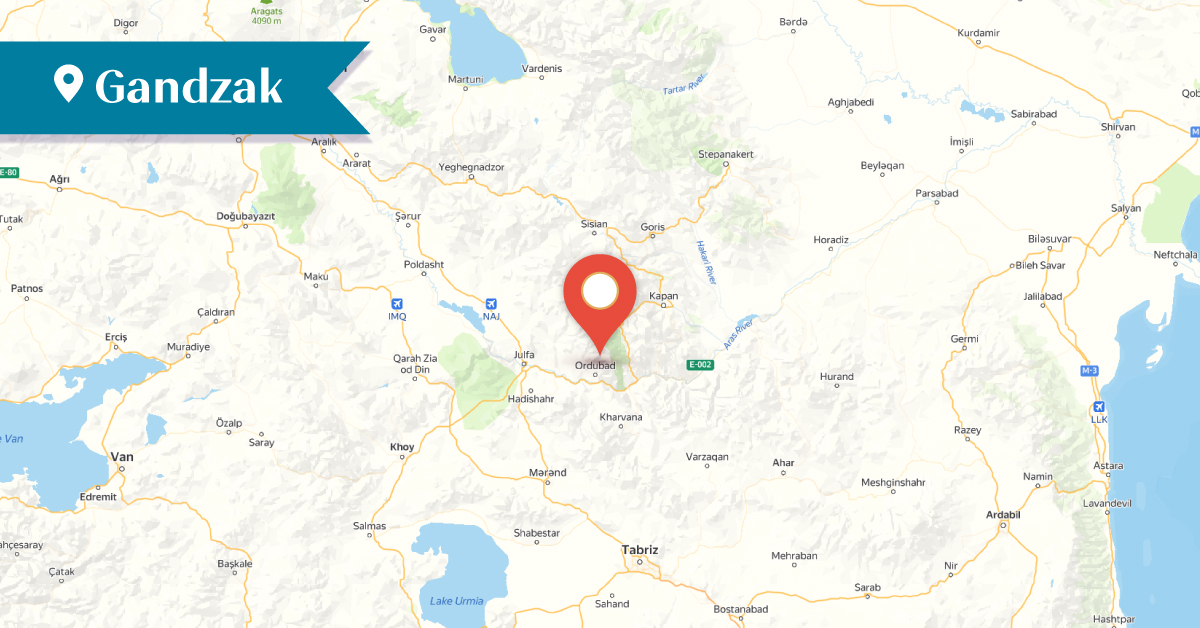“GEGHARD”
SCIENTIFIC ANALYTICAL
FOUNDATION
2026
2026
2025-05-02

The village of Gyanza in the Nakhijevan Autonomous Republic, originally the Armenian Gandzak, is located in the Ordubad district, 12 km northeast of the center, on the bank of the river of the same name. This once Armenian village today has 1,500 Turkic “Azerbaijani” inhabitants.
According to Azerbaijani “researchers,” the name Gyanza is a distorted version of the Arabic word kenisa, meaning “church,” and they claim that there are ruins of a sanctuary near the mountain[1] of the same name located close to the village. In reality, these are the ruins of the Sinеkan Desert Monastery, which was one of the prominent cultural centers of medieval Goghtn. Numerous manuscripts were written here, including Zhamgirk (Horologion) and Gospels.
There is another village named Gyanza in the Ismayilli district of Azerbaijan, where Azerbaijani “researchers” also mention the existence of an ancient Christian sanctuary. Such an explanation of the toponym Gyanza points to the Christian population of the village(s) and the Armenian ethnic character of the area.
Linguistically, the explanation of this toponym is connected to the Armenian word gandz (meaning treasure). [2] It is known that the word is an ancient Iranian borrowing and has become an integral part of the Armenian vocabulary.
In the 17th century, Gandzak of Nakhijevan was one of the centers of Catholic Armenians. The Armenian Catholic population of Nakhijevan was subjected to forced Islamization, including, at least partially, the inhabitants of Gandzak. The village had two monasteries and one church. A. Ayvazyan, quoting the research of Yervand Lalayan, notes that by the end of the 19th century, the ancient Church of Saint Hakobm though in a semi-ruined state, was still standing in Gandzak and it was later destroyed by Azerbaijanis.
Ghevond Alishan published the inscription from the khachkar (cross-stone) of the Church of Saint Hakob, which reads:
This cross is in remembrance, year 1576.
Bibliography
A. Ayvazyan, The Epigraphic Heritage of Nakhijevan, Vol. III, Goghtn District, 2007
Ghevond Alishan, Sisakan, Venice, 1898.
[1] Azerbaijanis call the nearby mountain of the same name Gənzədağ.
[2] Also, the name of the city of Gandzak, Turkish - Gəncə։